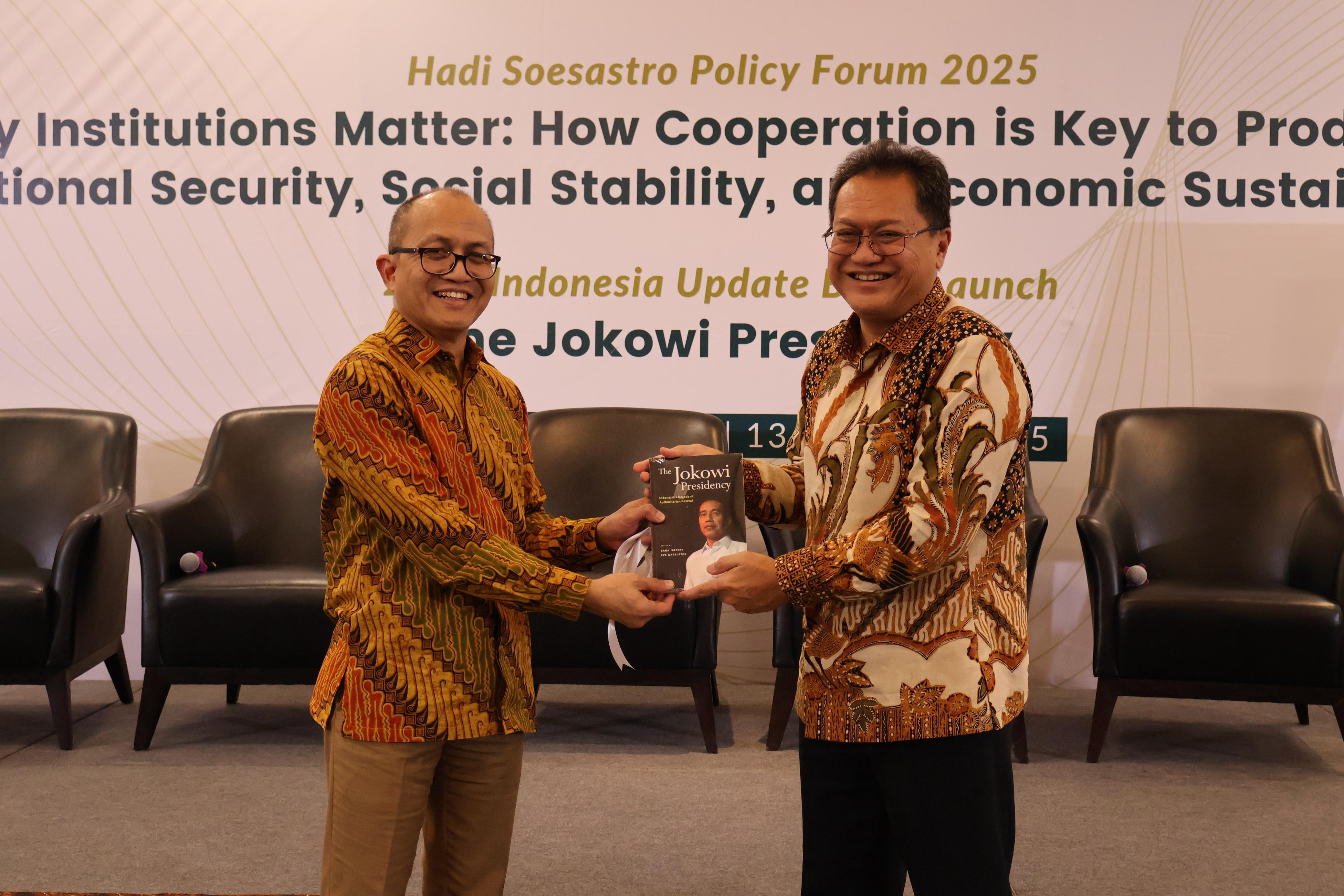
Jakarta, 13 August 2025 – Centre for Strategic and International Strategic (CSIS) Indonesia with the Indonesia Project at the Australian National University have successfully launched the book entitled “The Jokowi Presidency” at CSIS Auditorium, Jakarta, on 13 August 2025. This event brought scholars and experts, high-level and international government officials and ambassadors, and caught public attention for the remarkable book launch as a part of Indonesia Project Series by the Australian National University.
In opening remarks, Yose Rizal Damuri, Executive Director CSIS Indonesia, underscored how this book is a timely publication that lets us explore President Joko Widodo’s 10-year rule. Connecting this morning’s session about institutions, he added that the condition of institutions on the international level parallels Indonesia's situation lately, especially under Joko Widodo’s presidency era.
Main Session: 2024 Indonesia Update Book Launch
Todung Mulya Lubis, Anti-Corruption Activist and Indonesian Ambassador to Norway (2018-2023), started the session by providing the main context of Joko Widodo’s rise to power until his presidency ends. He examined how Joko Widodo’s populist images created hope for the people but later in his presidency, the policy and development headed to foreign investments with a cost of democracy.
Editor Remarks
Sana Jaffrey from the Australian National University presented how this book reflects the Australian National University's distinctive strength for understanding how it is, rather than just a larger theory. This book talks about Joko Widodo's decade presidency that in many ways transformed Indonesia with several shared insights, as in analyzing Joko Widodo as a figure and the features of the transformation on the political scene, which contains paradoxes.
Following Sana, Eve Warburton from the Australian National University, addressed the goals of bringing a range of voices into this book with a clear “benang merah”. She later emphasized how the book is structured, starting with how Jokowi understood the world which reflects Indonesia’s position globally, followed by the section about economic and social welfare, including his ambition to draw a legacy in infrastructures, continued with the section about law and the weakening of legal institutions, and ended with a chapter on local politics. She also mentioned that it is important to understand that Joko Widodo’s presidency is the one of the most popular in Indonesian democratic history, as a puzzle that needed to be understood and explained.
As the author remarks, Rizal Sukma, Senior Fellow at the Centre for Strategic and International Studies and the Ambassador of the Republic Indonesia in UK, Ireland, and IMO 2016 2020, underscored his point in the chapter he wrote on Joko Widodo’s interest in foreign policy. He addressed that Joko Widodo’s foreign interest was very much headed for something beneficial, such as investments, rather than a big concept of international issues.
#CSISIndonesia #NalarAjarTerusanBudi




